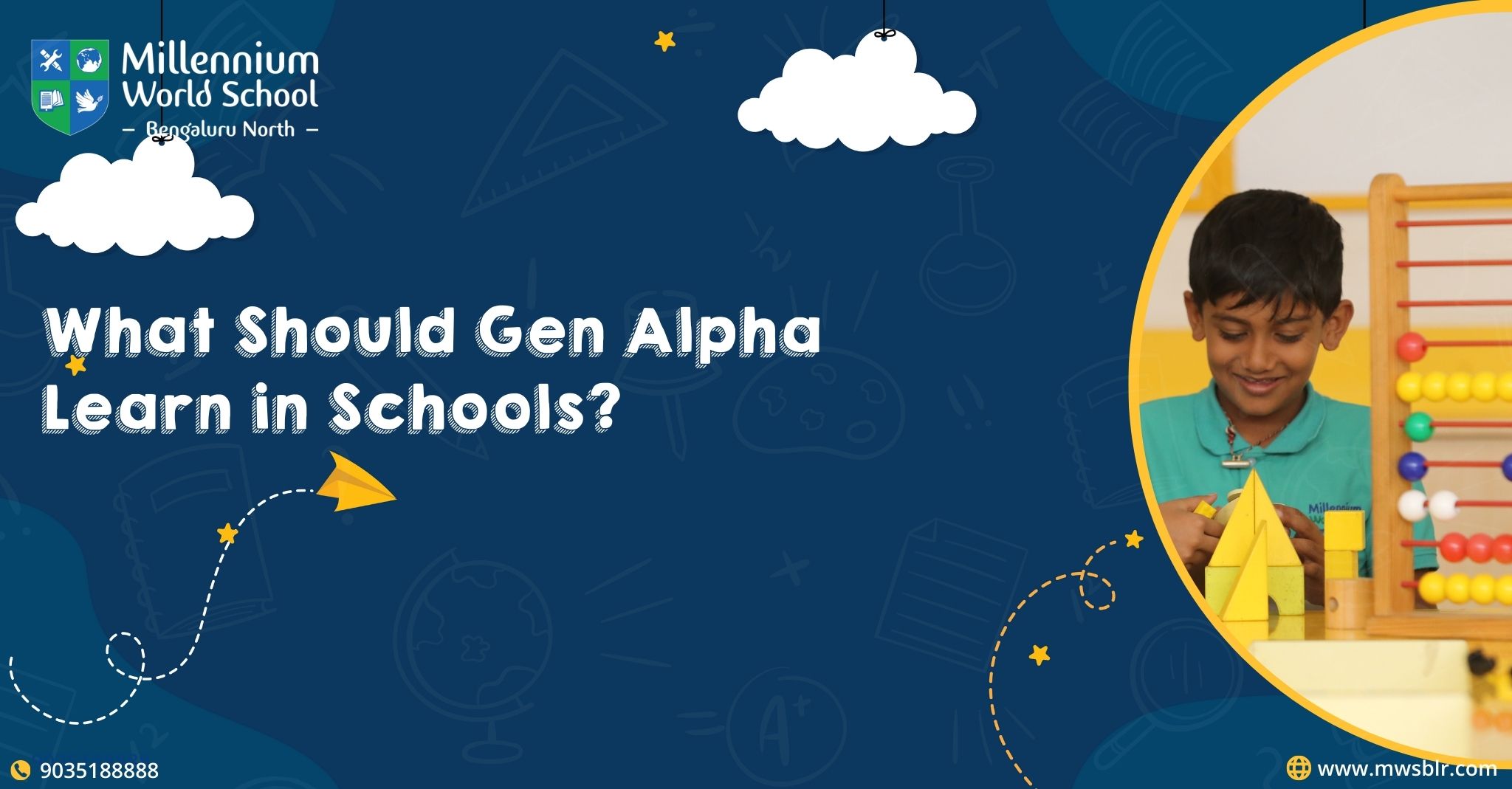
Gen Alpha, the generation born after 2010, is growing up in a world that is rapidly changing and evolving. They are exposed to new technologies, diverse cultures, and complex challenges that require new skills and mindsets.
How can schools prepare them for the future they will face? What should they learn and how should they learn it? In this blog, we will explore some of the insights from neuroscience that can help us answer these questions.
What Should Gen Alpha Learn?
According to the World Economic Forum, the skills that will be in high demand in the future include complex problem-solving, critical thinking, creativity, emotional intelligence, and cognitive flexibility. These skills are not only useful for the workplace, but also for personal and social development. They can help us adapt to changing situations, cope with uncertainty, and collaborate with others. They can also help us foster a growth mindset, which is the belief that we can improve our abilities through effort and feedback.
To develop these skills, gen alpha needs to learn more than just facts and procedures. They need to learn how to learn, how to think, and how to create. They need to learn how to ask questions, seek evidence, analyze information, and draw conclusions. They need to learn how to express their ideas, feelings, and opinions, and how to listen to and empathize with others. They need to learn how to generate solutions, test hypotheses, and iterate on their work. They need to learn how to be curious, resilient, and reflective.
How Should Gen Alpha Learn?
Neuroscience suggests that learning is not a passive or linear process, but an active and dynamic one. Learning involves multiple brain regions and networks, and is influenced by our emotions, motivation, and environment. Learning is also social and contextual, meaning that we learn better when we interact with others and when we connect our learning to our lives and interests. Therefore, to support gen alpha’s learning, we need to provide them with learning opportunities that are:
- Engaging: Learning should capture their attention, spark their curiosity, and stimulate their senses.
- Meaningful: Learning should relate to their prior knowledge, goals, and values, and help them make sense of the world.
- Challenging: Learning should stretch their abilities, provide them with feedback, and allow them to make mistakes and learn from them.
- Collaborative: Learning should involve social interaction, communication, and cooperation with others.
- Personalized: Learning should respect their individual differences, preferences, and needs, and allow them to choose and control their learning path.
- Fun: Learning should be enjoyable, playful, and rewarding.
Neuroscience and Learning
Neuroscience is the study of the brain and nervous system, and how they affect our behavior, cognition, and emotions. Neuroscience can help us understand how we learn, remember, think, and create, and what factors influence these processes. Neuroscience can also help us design learning environments and experiences that are aligned with how the brain works, and that can enhance our learning outcomes and well-being.
Neuroscience based future focused learning is not a one-size-fits-all approach, but a flexible and adaptable one. It requires us to rethink our curriculum, pedagogy, and assessment, and to embrace innovation and experimentation. It also requires us to collaborate with gen alpha, and to empower them as co-creators of their own learning. By doing so, we can help them develop the skills and mindsets they need to thrive in the future.


